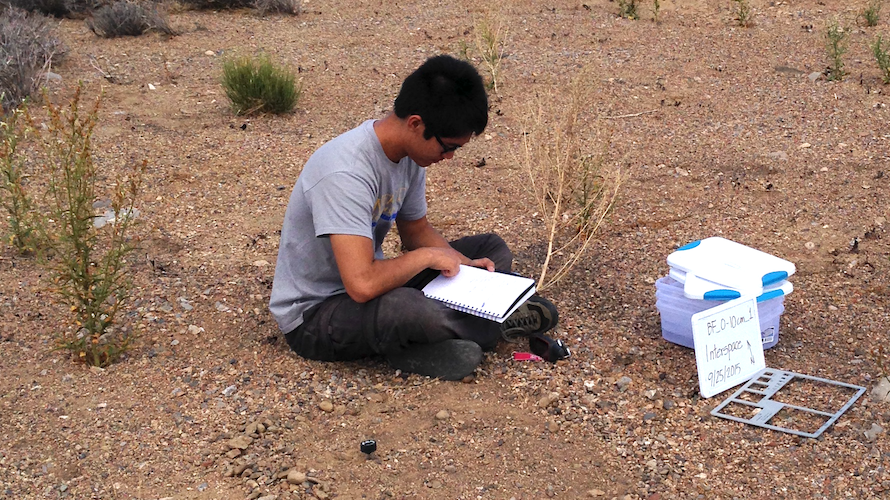June 10, 2018 by
Fate of SOM under low severity fires
A paper from Mathew Jian’s MS thesis, describing Vulnerability of physically protected soil organic carbon to loss under low severity fires was accepted in GFrontiers in Environmental Sciences: Soil Processes.
(missing reference).
Abstract
Soil aggregate degradation during medium and high severity fires is often identified as the main mechanism that leads to loss of soil organic matter due to fire. Low severity fires, however, are considered not to cause aggregate degradation assuming that temperatures <250º C, as occurring during low-severity burns, have only limited effects on the stability of the soil organic binding agents. Recent studies suggest that low severity burns may cause soil aggregate degradation due to rapid vaporization of soil pore water that can induce pressure on the soil aggregates beyond their yield stress. Such pressure-driven degradation of soil aggregates may expose physically protected organic carbon to decomposition. Our study investigated the effect of a low-severity fire on soil organic matter, water extractable organic C and N as well as respiration for two initial soil moisture conditions undergoing three “heating regimes” using aggregates from a California forest and Nevada shrubland soil. We found that initially moist soil aggregates that were rapidly heated up degraded the most, showing increased cumulative carbon mineralization when compared to aggregates that were not heated, aggregates that were dry before being heated , and initially moist soil aggregates that were slowly heated. Our results suggest that exposure of previously physically protected organic carbon within the soil aggregates to oxidative conditions was the most likely cause of increased rates of decomposition of organic matter after low-intensity burns. Additionally, we show that for a shrubland soil, aggregates with relatively low organic carbon content, low severity burns increased cumulative carbon mineralization. We hypothesized that this was due to decomposition of cytoplasmic material from lysed microbes. Our results suggest that low severity burns can accelerate decomposition of soil organic carbon protected in soil aggregates.

